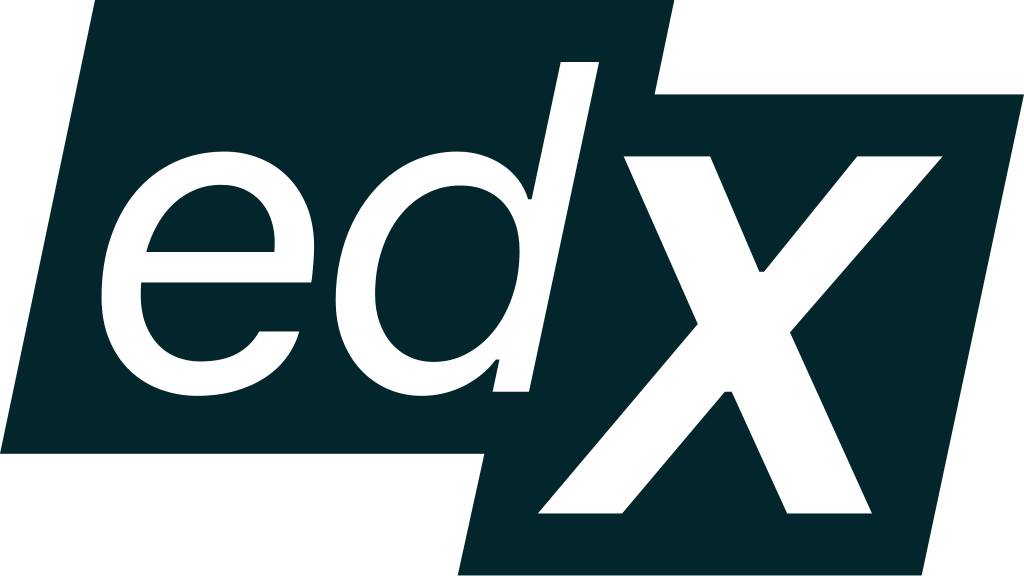Online learning platforms have completely changed how people obtain education in recent years, making it more flexible, accessible, and customized than before. These online courses websites provide a multitude of chances, whether you’re a busy professional trying to improve your skills, a student seeking additional resources, or an individual pursuing a new pastime. The days of education being limited to conventional classrooms are long gone. Today, students from all over the world may access top-notch online training taught by professionals in almost any topic they can think of with just a laptop and an internet connection. As educational websites develop further, it becomes evident that these platforms are more than a passing fad; rather, they are altering how we think about learning in the digital age and influencing the direction of education.
In this blog, best online learning platforms are selected and analyzed detailedly serving as a comprehensive guide, helping you have more supplementary resources, upskill yourselves and gain more opportunities. We’ll explore how online learning platforms are revolutionizing the educational landscape and why they should be an essential part of your lifelong learning journey.
Top 10 Online Learning Platforms
Top 1. Udemy

- Users: 75 million
- Best For: Variety and affordability.
- Pros: No setup cost (for instructors), Geared towards self-paced learning and video courses, No need for highly technical knowledge, A Udemy app available for iOS and Android.
- Cons: Limited interaction with students, High competition between instructors, No personal branding option, No data ownership or control over branding- it keeps emails and user data and does not share this information with instructors, Visibility depends on your own marketing – the platform only promotes courses that are already popular.
- Pricing: Most Udemy courses end up selling between $10-$20 with very few exceptions where instructors have set a higher price.
Udemy, Inc. is one of interactive learning platforms, founded in May 2010 by Eren Bali, Gagan Biyani, and Oktay Caglar. It is the top one online learning platforms and one of online courses websites. It is based in San Francisco, California, United States, with hubs in Denver, Colorado; Dublin, Ireland; Austin, Texas; Melbourne, Australia; İstanbul, Turkey, and Gurgaon, India. As of September 30, 2024, the platform claimed to have nearly 75 million learners with over one billion course enrollments. The platform offers over 250,000 courses, and more than 75,000 instructors teaching courses in 75 languages. Students take courses primarily to improve job-related skills. Some courses generate credit toward technical certification. Udemy attracts corporate trainers seeking to create coursework for employees of their company.
Top 2. Coursera

- Users: 142million
- Best For: Accredited certificates and degrees.
- Pros: Offers a variety of learning options and activities, Offers certifications from accredited institutions, Provides high-quality educational tools, Courses are free if you are not looking for a certification.
- Cons: Limited to educators in partner institutions, Less flexible course creation options compared to other platforms, Does not offer instructor feedback, only peer-reviewed assignments as a feedback mechanism.
- Pricing: Coursera offers free courses, subscriptions, and one-off payments depending on the course or program.
Coursera Inc. is an American global massive open online course provider and one of best online learning platforms. It is one of online learning platforms and one of online education platforms which provides professional development e-learning programs. It was founded in 2012 by Stanford University computer science professors Andrew Ng and Daphne Koller. Coursera works with universities and other organizations to offer online courses, certifications, and degrees in a variety of subjects. As of 2023, more than 300 universities and companies were offering courses through Coursera, and by 2024, the number of courses available had risen to approximately 7,000.
Top 3. edX

- Users: 60million
- Best For: Formal education.
- Pros: Free and open-source (for instructors), Provides in-depth knowledge and added value (for students), Comes with a mobile app on iOS and Android, Interactive online classes – allowing students to chip in.
- Cons: Discussion forums seem to be outdated and difficult to navigate, Requires technical knowledge or hiring a developer/web designer to implement (for instructors), Comes with the additional costs of a self-hosted server and its maintenance (for instructors).
- Pricing: Free classes do not offer certificates. Courses that come with certificates cost between $50 and $300. Full degree programs combine multiple courses and are usually $1,000or higher.
edX is a US for-profit online education platform owned by 2U since 2021 and one of best learning apps. It is one of online learning platforms and one of interactive learning platforms which provides online education courses. The platform’s main focus is to manage a variety of offerings, including elite brand bootcamps. edX courses consist of weekly learning sequences. Each learning sequence is composed of short videos interspersed with interactive learning exercises, where students can immediately practice the concepts from the videos.
Top 4. Thinkific
- Users: 78million
- Best For: Custom course creation and digital products.
- Pros: Has a freemium plan, Full-featured platform, Integrates with popular software, Lots of (paid) experts can help you build your website/courses, Includes mobile app & community features.
- Cons: Limited website templates & design options, Basic learning features, Does not support SCORM, TinCan, or AICC, Bad support.
- Pricing: Thinkific has a free plan that allows you to start building courses right away. Paid plans provide you with access to more engagement, tracking, and monetization features, and start at $149 per month. For learners, Thinkific’s courses are all priced independently by the course creators using the platform. Take some time to research a topic that you love and you’ll likely find a bunch of free courses, too!
Thinkific is designed to faciliate building, marketing, and selling online courses, so our platform comes pre-loaded with tools that simplify the entire process from end-to-end. It is one of online learning platforms and one of interactive learning platforms which provides tools that can help online learning. Choose the right plan for your needs today. Thinkific is celebrated for its user-friendly interface and affordability, making it a great choice for creators looking for a simple solution to start their educational journey.
Top 5. LearnWorlds
- Users: 60million
- Best For: Best course sales software.
- Pros: Easy to use, Course authoring, website builder, e – commerce, and user management, White-label website & mobile app, Supports SCORM and HTML5 files, AI Assistant to build courses with artificial intelligence, Exceptional customer support.
- Cons: No marketplace for courses, Does not support TinCan and xAPI, Limited gamification options.
- Pricing: Starter plan: $29/month, Pro trainer plan: $99/month, Learning Center: $299/month, High Volume and custom corporate pricing are available.
Founded in mid – 2014, it is a passionate company with offices in Greece and Cyprus. It is one of online learning platforms and one of online learning platforms used by colleges which provides high-quality virtual learning resources. LearnWorlds is driven by a highly competitive team, that leads by example, with strong background in e-learning, innovation and digital technologies. LearnWorlds is the best course sales software that provide the students with on time courses and manages the issues related to course handling.
Top 6. Kajabi

- Users: 60million
- Best For: Course platform with marketing feature.
- Pros: Best-in-class marketing features, Many automations for course creation (AI) and funnels, Supports many digital products: courses, memberships, podcasts, etc.
- Cons: No free plan, No advanced learning features, Can be difficult to set up, Many limitations, and ends up being quite expensive quickly.
- Pricing: Offers a 14-day trial with a credit card. Then it goes to a monthly payment of the subscription plan, which includes: Basic plan: $149/month, Growth plan: $199/month, Pro plan: $399/month.
Kajabi was founded in Irvine, California in 2010 by Kenny Rueter, a software engineer who created a PVC sprinkler toy for his sons. Kajabi LLC is a Newport Beach, CA-based SaaS technology company that develops a platform for creators and entrepreneurs to create, market and sell digital content. It is one of online homework platforms for students and one of online learning programs which provides superior resources for e-learning. Recently Kajabi has expanded its focus to include support for online courses and app development.
Top 7. Skillshare

- Users: 45million
- Best For: Creative skills and projects.
- Pros: More than 35,000 courses, A mobile app for on-the-go learning, Learning from “real”people rather than organizations.
- Cons: Courses rarely go in-depth, Instructors may not have professional training.
- Pricing: The pricing seems to depend on the country where you reside. However, on average, you can expect to pay $168 per year, or $14 per month.
Skillshare is an online learning community based in the United States that provides educational videos. It is one of best learning platforms 2024 for students and one of best online learning platforms which provides online educational programs. The courses are non accredited and are only available through a paid subscription. The courses primarily cover creative work, with a smaller amount of courses on business and entrepreneurship. Most of the courses focus on interaction, with the primary goal of learning by completing a project. Skillshare organizes courses in advertising, business, design, fashion and style, film and video, food and drink, music, photography, gaming, technology, and writing and publishing.
Top 8. OpenLearning

- Users: 21million
- Best For: Microcredentials and community learning.
- Pros: Use microcredentials toward university degrees, Supportive community, Leverages AI technology.
- Cons: Courses can be expensive.
- Pricing: Free courses available; microcredential courses $150-$500. Course creation starts at $900/year.
OpenLearning Limited (OLL) is an Australian Securities Exchange listed educational technology company based in Australia that offers a social online learning platform that can deliver massive open online courses (MOOCs), short courses and online degrees. It is one of best learning platforms 2024 for students and one of best online learning platforms which provides online ed courses. OpenLearning has worked with the University of New South Wales and Taylor’s University to deliver the first MOOCs in Australia and Malaysia respectively.
Top 9. Docebo

- Users: 32million
- Best For: Traditional LMS for Entreprises.
- Pros: Supports SCORM, AICC, and Tin Can API, Has engaging gamification capabilities, Provides analytics on the effectiveness of learning programs, Supports more than 40 languages.
- Cons: Very expensive, only suitable for enterprises, Lacking reporting feature, Limited customization capabilities.
- Pricing: Docebo’s pricing is based on active users and has a steep lower cost of $25,000. Engage plan: Starts at $25,000/year, Elevate plan: Starts at $40,000/year, Enterprise plan: You need to book a demo for a custom price.
Docebo Inc. is a software company that specializes in learning management system. It is one of online e learning platforms and one of best online learning platforms which provides good online courses. Docebo was founded in 2005. Its product Docebo Learn LMS is compatible with Sharable Content Object Reference Model (SCORM) 1.2 and 2004 as well as Tin Can. The program operates as a cloud-hosted software-for-service platform as well as being compatible with third-party platforms. Docebo LMS currently works with version 7.5 and is available in more than 40 languages.
Top 10. Moodle

- Users: 25million
- Best For: Most Popular Open-Source LMS.
- Pros: Open Source (free to use), Most customizable solution, Compatible with SCORM, AICC, IMS LTI, and xAPI/Tin Can API, A big community of users, developers, and businesses offering services and support.
- Cons: Doesn’t offer support, but you can pay for it, Very old user interface, You need an expert or a team of experts to use it.
- Pricing: Moodle is open-source Moodle which is free to use but requires your own server to host. The other is MoodleCloud or other providers, which offer a cloud-based solution and usually come with tech support. For off-the-shelf hosting: Starter: $120/year (50 users, 250MB), Mini: $200/year (100 users, 500MB), Small: $380/year (200 users, 1GB), Medium: $870/year (500 users, 2.5GB), Large: $1,650/year (1,000 users, 5GB).
Moodle is a free and open-source learning management system written in PHP and distributed under the GNU General Public License. It is one of online learning platforms and one of interactive learning platforms which provides online education courses. Moodle is used for blended learning, distance education, flipped classroom and other online learning projects in schools, universities, workplaces and other sectors. Moodle is used to create custom websites with online courses and allows for community-sourced plugins. Moodle was originally developed by Martin Dougiamas to help educators and scholars create online courses and focus on interaction and collaborative construction of content.
Importance of Online Learning Platforms
- Flexibility and Convenience
With an online learning platform, students can access the materials whenever they want and from any location with an internet connection. People with hectic schedules, such as working professionals, students with part-time jobs, or those with family responsibilities, will find this especially helpful.
- Access to a Wide Range of Courses
A wide range of courses are available on online learning platforms in a variety of areas, including the creative arts, business management, healthcare, and technological subjects like coding and data science. Without being constrained by financial or geographic constraints, this diversity enables students to delve deeply into a particular subject or explore other subjects.
- Personalized Learning Experience
Online learning platforms cater to different learning styles by providing videos, text-based lessons, quizzes, forums for interaction, and practical assignments. Learners can choose the format that works best for them, enhancing engagement and retention.
- Global Reach and Diverse Communities
Students can connect with friends and teachers around the world using online learning platforms that frequently feature discussion boards, live webinars, and collaborative projects. Because of this, a diverse community of learners is formed, allowing individuals from various backgrounds and cultures to share ideas and experiences, so expanding their horizons.
- Cost-Effectiveness
Online courses often come at a fraction of the cost of traditional college or university programs. This makes education more accessible to people who might not have the financial means to attend full-time institutions.
How to Choose the Best Online Learning Platforms
- Assess Your Learning Goals and Needs
Before selecting a platform, clarify what you want to achieve. Understanding your goals will help you select a platform that offers the right courses and learning paths.
- Course Content and Quality
Choose a platform that offers courses in your area of interest. Examine whether the courses are well-structured, with clear learning objectives, detailed lessons, assessments, and practical assignments.
- Instructor Quality and Credentials
Investigate the credentials of the instructors leading the courses. Reviews from other learners can give you valuable insights into the teaching style, engagement level, and clarity of the instructor.
- Learning Style and Personalization
Platforms that offer personalized learning paths or adaptive learning technology can tailor content to your needs, adjusting difficulty levels based on your progress.
- Price and Subscription Plans
Many platforms offer free trials or money-back guarantees, allowing you to test out the courses before committing to a purchase.
Difference Between Online Learning Platforms and Learning Management Systems
- Online learning platforms are centered around content delivery, providing users with structured courses that include videos, articles, quizzes, and assignments.Learning management systems are used to organize, distribute, and manage learning content created by instructors, trainers, or institutions.
- Online learning platformscater primarily to individual learners looking for courses across various fields. Learning management systems are mainly used by organizations, educational institutions, or businesses that need to manage large groups of learners (employees, students, trainees, etc.).
- The content on online learning platforms is typically created and provided by the platform or third-party course creators.Learning management systems allow admins or instructors to create highly customized and tailored courses according to the needs of their organization or educational institution.
Conclusion
In this blog, best online learning platforms are selected and analyzed detailedly serving as a comprehensive guide, helping you have more supplementary resources, upskill yourselves and gain more opportunities.
After you have decided to have a long learning journey on onlibe learning platforms, accommodation is the first and foremost thing. uhomes.com is a platform providing affordable, reliable and comfortable student apartments in US. Some apartments here provide free and high-speed WIFI to meet your Internet access and study requirements.
FAQ
Udemy is the best overall online learning platform. Udemy offers university-level courses and certification programs taught by instructors from top companies and universities such as Stanford, Yale, and Princeton.
Coursera is perhaps the biggest name in online courses and education, with a global roster of universities and partners offering more than 7,000 specialized courses. Much of the service is available for free, or you can use it to earn an online degree from an accredited university.
LDS stands for Learning Destination Site. It is a website where many different course creators offer their teaching materials. You can choose the topics and instructors that sound appealing to you and enroll in an individual course based on your preferences. LMS stands for Learning Management System.
An electronic learning platform is an integrated set of interactive online services that provide trainers, learners, and others involved in education with information, tools, and resources to support and enhance education delivery and management.
Mormonism is a term defining the religious beliefs and practices of members of The Church of Jesus Christ of Latter-day Saints, also known as Mormons. Mormonism describes the doctrines of the Church that were restored to the earth through the Prophet Joseph Smith.
There is an increased demand for online educators, and many teachers, professionals, and subject matter experts are turning to online teaching as a flexible teaching career option.
Coursera is perhaps the biggest name in online courses and education, with a global roster of universities and partners offering more than 7,000 specialized courses. Much of the service is available for free, or you can use it to earn an online degree from an accredited university.








